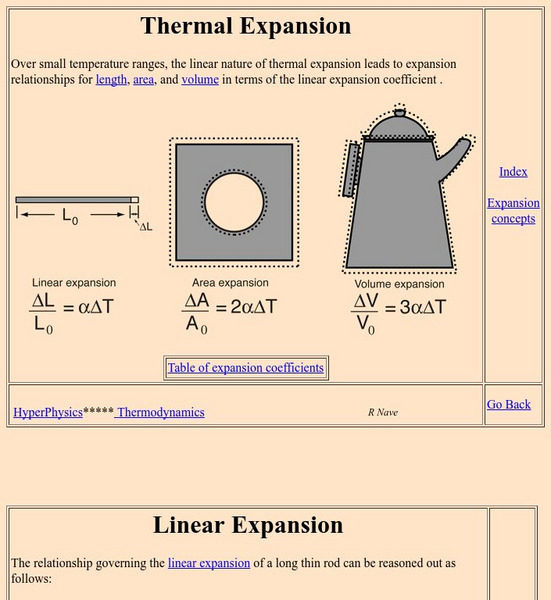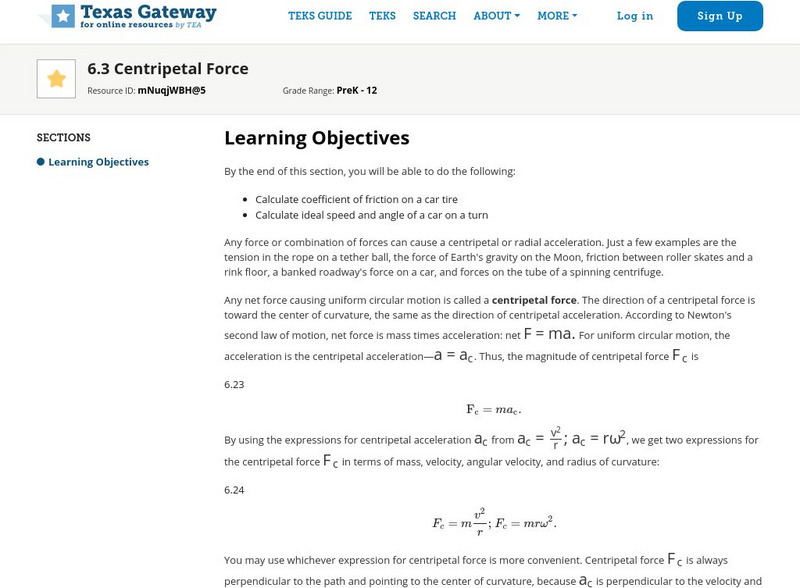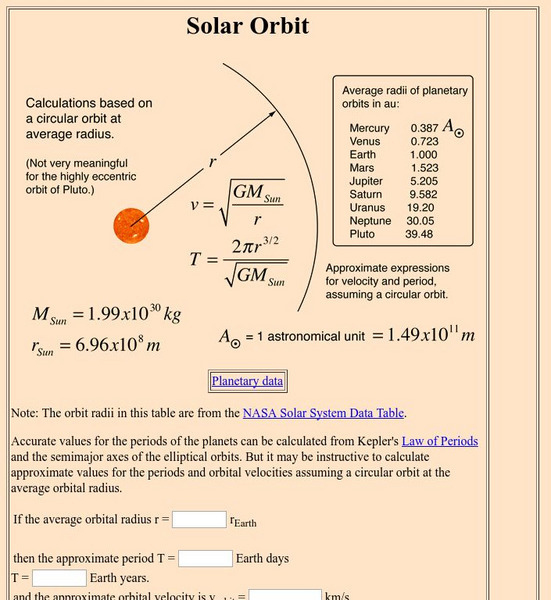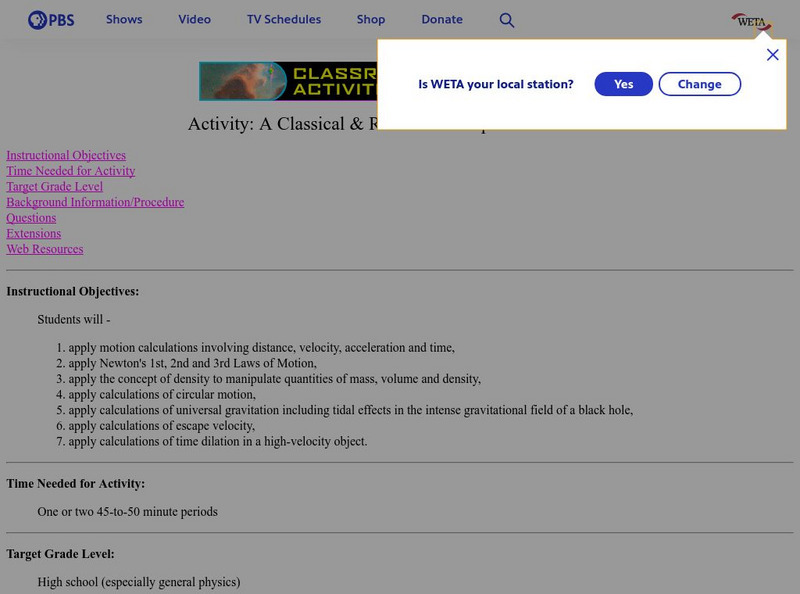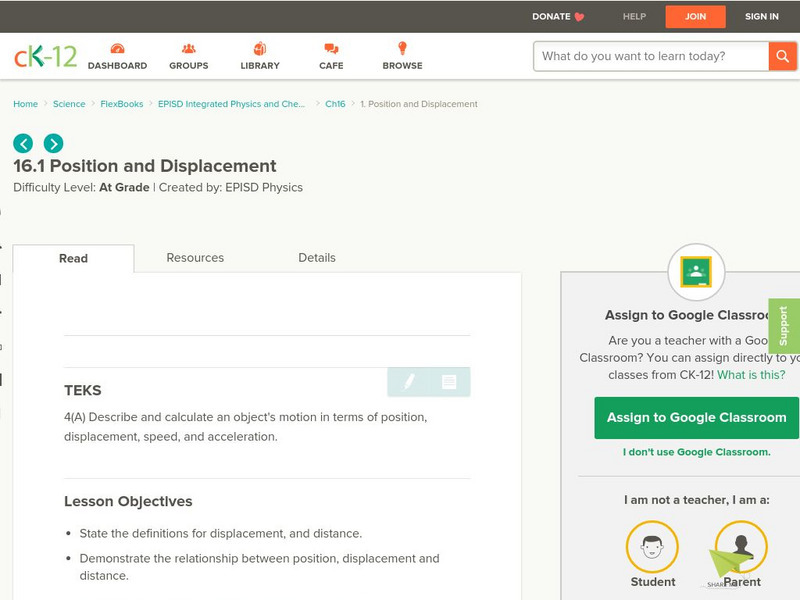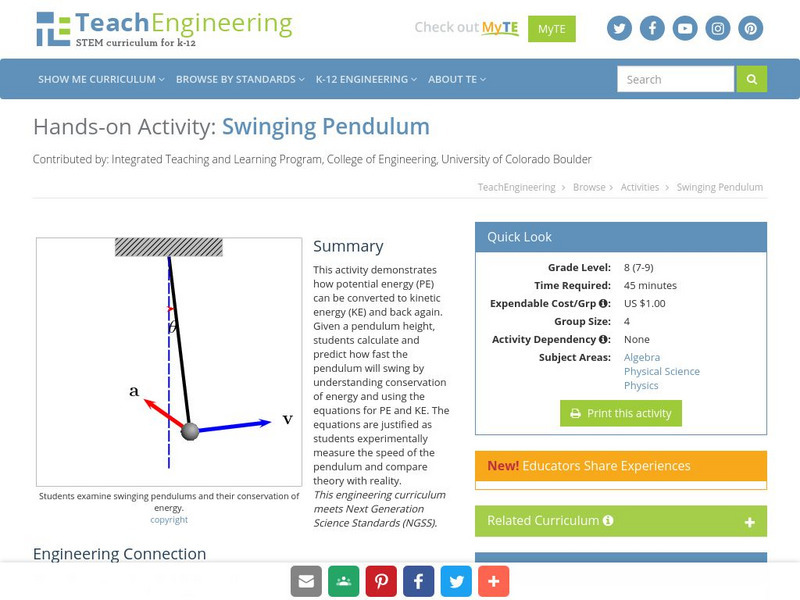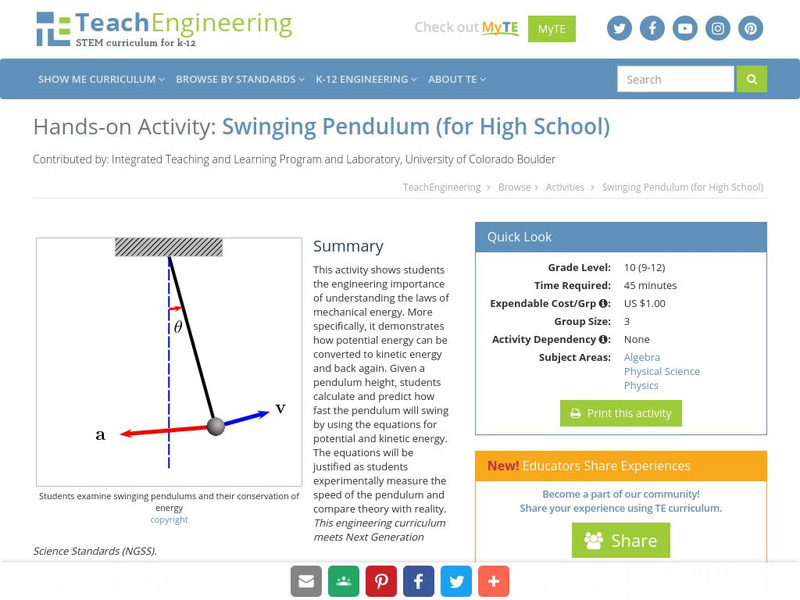Hi, what do you want to do?
Georgia State University
Georgia State University: Hyper Physics: Expansion Concepts
An indexing page from Georgia State University Physics Department which includes links to various other pages with information pertaining to thermal expansion. From expansion coefficients to equations to calculation and practice pages,...
Georgia State University
Georgia State University: Hyper Physics: Temperature
A page describing the concept of temperature and temperature scales. An interactive JavaScript form allows the visitor to investigate the relationship between the Kelvin, Celsius and Fahrenheit scales; enter a value and allow the...
Georgia State University
Georgia State University: Hyper Physics: Area Expansion
The concept of area expansion is presented and explained. An equation for calculating the amount of area expansion is provided.
Georgia State University
Georgia State University: Hyper Physics: Relativistic Energy
A mathematically understandable presentation of relativistic energy. Parts include Relativistic Energy, Rest Mass Energy, Conservation of Energy, Pair Production, Relativistic Kinetic Energy, and even Kinetic Energy. A couple of...
Texas Education Agency
Texas Gateway: Uniform Circular Motion and Gravitation: Centripetal Forces
By the end of this section, you will be able to calculate coefficient of friction on a car tire and to calculate ideal speed and angle of a car on a turn.
Texas Education Agency
Texas Gateway: Circular Motion & Gravitation: Rotation Angle & Angular Velocity
By the end of this section, you will be able to define arc length, rotation angle, radius of curvature, and angular velocity; and to calculate the angular velocity of a car wheel spin.
Physics Classroom
The Physics Classroom: 1 Dimensional Kinematics
An activity in which average speed is calculated for a ball sliding along an inclined plane. This speed is compared to various instantaneous speeds along the incline.
Georgia State University
Georgia State University: Hyper Physics: Solar Orbit
A table listing the average radius of orbit for the nine planets about the sun; expressed in astronomical units. Data can be used to calculate the orbital speed or the orbital period.
CK-12 Foundation
Ck 12: Episd: Position Time Graphs
[Free Registration/Login may be required to access all resource tools.] Understand how to evaluate data presented in graphs based on speed and velocity calculations.
CK-12 Foundation
Ck 12: Instantaneous Velocity
[Free Registration/Login may be required to access all resource tools.] Students explore instantaneous velocity and how to calculate it. They also learn how interpret and create position vs time graphs.
PBS
Pbs: A Classical and Relativistic Trip to a Black Hole
This PBS site is a classroom activity that takes a trip to a black hole. Students apply calculations on distance, velocity, acceleration, time, circular motion, density, and more.
CK-12 Foundation
Ck 12: Position and Displacement
[Free Registration/Login may be required to access all resource tools.] Students explore and calculate an object's motion in terms of position, displacement, speed, and acceleration.
Georgia Department of Education
Ga Virtual Learning: Linear Motion
A learning module where students gain an understanding of the relationships between the different kinds of motion. Students will be able to explain free-fall motion and use kinematics equations to calculate problems involving falling...
Texas Education Agency
Texas Gateway: Motion of an Object in a Viscous Fluid
By the end of this section, you will be able to calculate the Reynolds number for an object moving through a fluid, explain whether the Reynolds number indicates laminar or turbulent flow, and describe the conditions under which an...
Texas Education Agency
Texas Gateway: Kinetic Theory: Atomic & Molecular Explanation of Pressure & Temp
By the end of this section, you will be able to express the ideal gas law in terms of molecular mass and velocity; define thermal energy; calculate the kinetic energy of a gas molecule, given its temperature; describe the relationship...
Khan Academy
Khan Academy: What Is Centripetal Acceleration?
Learn what centripetal acceleration means and how to calculate it. Included are two example problems with solutions.
PE Central
Pe Central: Pe Lesson Ideas: How Far to Mount Katahdin
Organized into 5 parts, this lesson combines physical activity with academic subjects including math, health, and geography. In part I, students calculate how many steps it would take to complete the Appalachian Trail. In parts II and...
TeachEngineering
Teach Engineering: Swinging Pendulum
This activity demonstrates how potential energy (PE) can be converted to kinetic energy (KE) and back again. Given a pendulum height, students calculate and predict how fast the pendulum will swing by understanding conservation of energy...
TeachEngineering
Teach Engineering: Swinging Pendulum
This activity shows students the engineering importance of understanding the laws of mechanical energy. More specifically, it demonstrates how potential energy can be converted to kinetic energy and back again. Given a pendulum height,...
Texas Instruments
Texas Instruments: Classroom Activities: Parachuting
This activity explores a parachutist and her position, velocity and acceleration. Graphing and calculating these functions will be required.
Science Education Resource Center at Carleton College
Serc: Discovering Velocity Outside of the Classroom
A physics lab activity where students gather data from classmates running at different rates on a football field. They then share their gathered data and transfer it to a graphing program to ultimately calculate average velocity.
TeachEngineering
Teach Engineering: Projectile Motion
Students are introduced to the concept of projectile motion, of which they are often familiar from life experiences,such as playing sports such as basketball or baseball, even though they may not understand the physics involved. Students...





